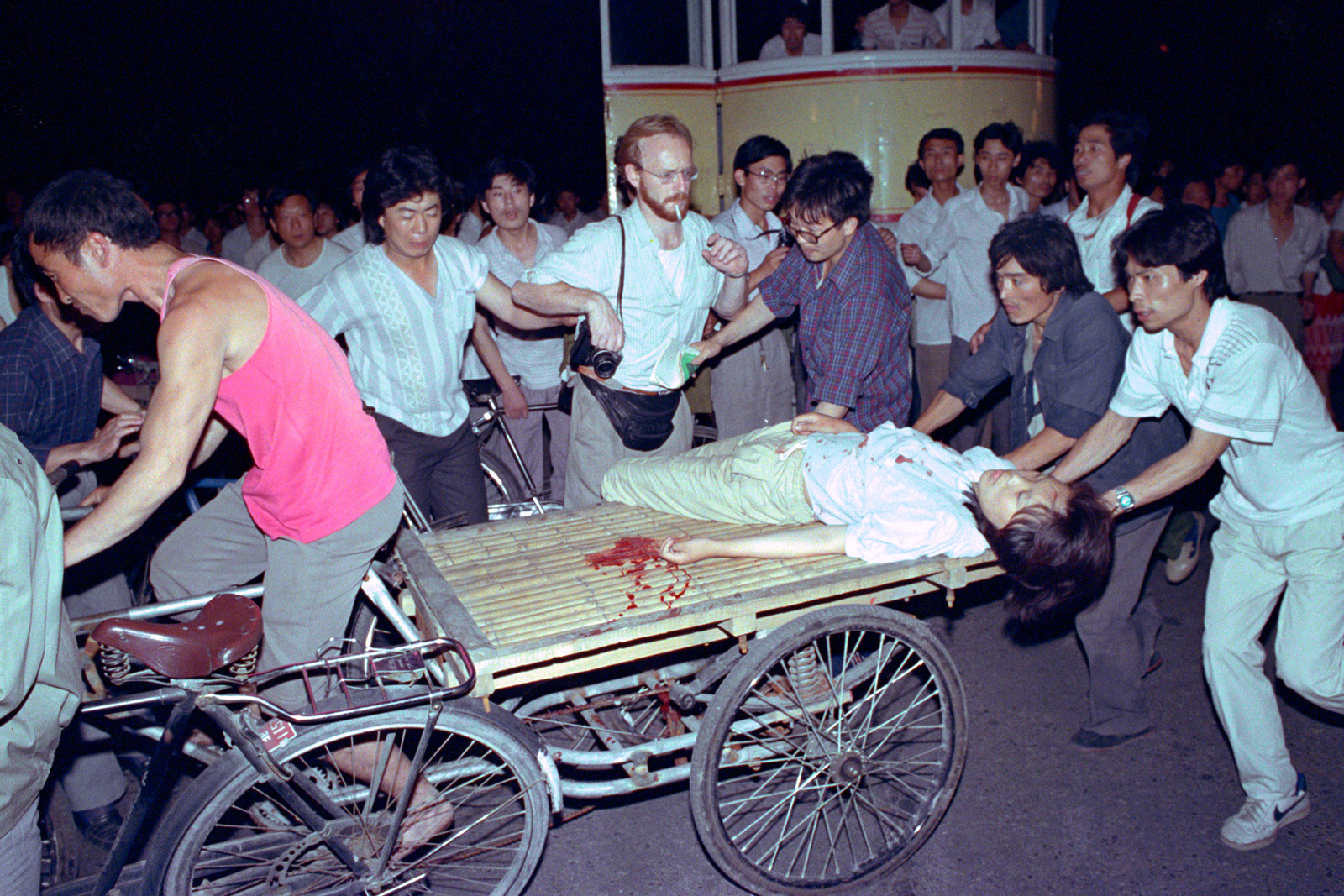

His loyalty to the party even remained when he and other members of his family were accused of being anti-Communist. He had little sympathy for anyone killed due to their pro-capitalist stance. During his growing up period into adulthood, everything that he had heard or seen about western society - primarily through the eyes of that propaganda machine - strengthened his resolve of the Communist Party's greatness in doing what was best for the country, and the problems of capitalist societies in not supporting the poor and downtrodden. During his early artistic years, Wang used his art to further the ideals of the Communist Party by having them as the graphic centerpieces in party propaganda posters. He and his family were faithful to Chairman Mao and the Communist Party. “We reaffirm our commitment to our many partners across the region and the new generations and communities who carry on the spirit of the Tiananmen Democracy Movement against tremendous odds in pursuit of a free, open, and democratic China.Born in 1960, artist Shui-Bo Wang grew up during the height of the Communist era in China. “NED stands in solidarity with those forced into exile yet who continue to face intimidation, threats, and coercion from brazen CCP operatives outside of China,” said NED President and Chief Executive Officer Damon Wilson. Today, NED honors the lives lost to the CCP’s brutal campaign of violence and political repression. These tactics betray the fear of regimes, who despite wealth and military might, resort to these ploys when confronted by the desire of their own people for democratic rights and freedoms. Standing for these values and siding with democratic activists has made NED and its partners a target of authoritarian governments and propagandists who seek to repress all opposition and to expand their tactics of intimidation. Since 1984, NED has supported efforts to promote democratic values and institutions in China, to protect fundamental rights and freedoms, and demand accountability for human right abuses.

The CCP has developed, used, and exported sophisticated new tools and methods to surveil, censor, harass, and otherwise target anyone who disagrees with the Party line, including those who sought safety in exile. Thanks to courageous activists and journalists, the world is well informed about the cradle-to-grave oppression of Tibetans, the devastating crackdown on the democracy movement in Hong Kong, and the relentless attacks against human rights defenders and dissidents across China. The world has witnessed the CCP’s genocide targeting the Uyghur people, their language, and their culture. The struggle for freedom in China has reached a new and crucial phase, as the CCP escalates campaigns of repression and persecution of its own citizens, both at home and abroad. The National Endowment for Democracy (NED) is proud to have long supported many of these efforts as part of our mission to advance and strengthen democratic values and institutions. In the 33 years since the June Fourth massacre, dissidents and democrats around the world have worked to keep the spirit of the Chinese democracy movement alive. The Tiananmen Square Massacre and its aftermath marked the darkest days for the democratic movement in China, and decades later, the CCP continues to deny its role in spilling the blood of its own people.

On June 4, 1989, hundreds of thousands of brave Chinese students, workers, and citizens from all walks of life stood up for fundamental freedoms and aspirations for democracy-and thousands of demonstrators were brutally murdered in the streets of Beijing and across the country by the Chinese Communist Party (CCP). (Photo by CATHERINE HENRIETTE / AFP via Getty Images.)

Chinese citizens gathered on Tiananmen Square in 1989 to demand democracy and freedom.


 0 kommentar(er)
0 kommentar(er)
